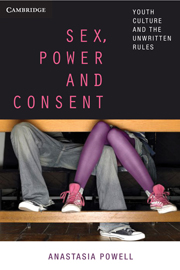1 - Introduction
Rewriting the rules?
Published online by Cambridge University Press: 03 May 2011
Summary
Contemporary western culture has been described as the ‘age of raunch’, ‘generation sex’ and generation SLUT (Sexually Liberated Urban Teens). These are the times of an unprecedented sexualised, sex-crazed and sex-everywhere culture, following the so-called liberation of the 1960s and 1970s. The rules for negotiating a sexual relationship have changed and are still changing. Today's young people – meaning those born in and after 1982, collectively referred to as ‘Generation Y (Gen-Y)’ or ‘Millennials’ – are negotiating their early love and sexual relationships in an increasingly fluid and uncertain environment. The apparent mellowing of traditional values towards sex, marriage and the family mean that Gen-Y is redefining these new rules. But just what is it about these rules that is changing? In what ways have they changed already? In what ways are they still the same?
Certainly, young people today are first engaging in sexual intercourse at an earlier age than their parents or grandparents did. The nature of their love/sex relationships is also changing. With most people marrying later, young people are more likely nowadays to have many sexual partners before settling down. The sexual double standard, the concern with sexual reputation that once precluded women from engaging in sex for pleasure and outside of a long-term committed relationship, may have shifted and may even no longer exist.
- Type
- Chapter
- Information
- Sex, Power and ConsentYouth Culture and the Unwritten Rules, pp. 1 - 9Publisher: Cambridge University PressPrint publication year: 2010



